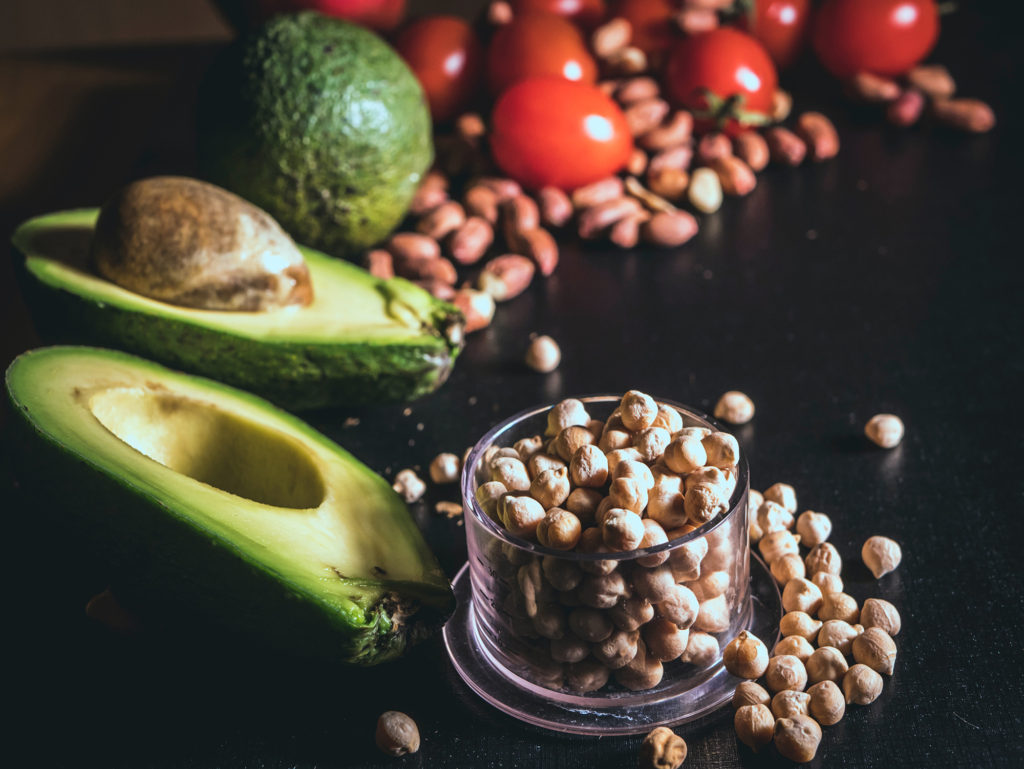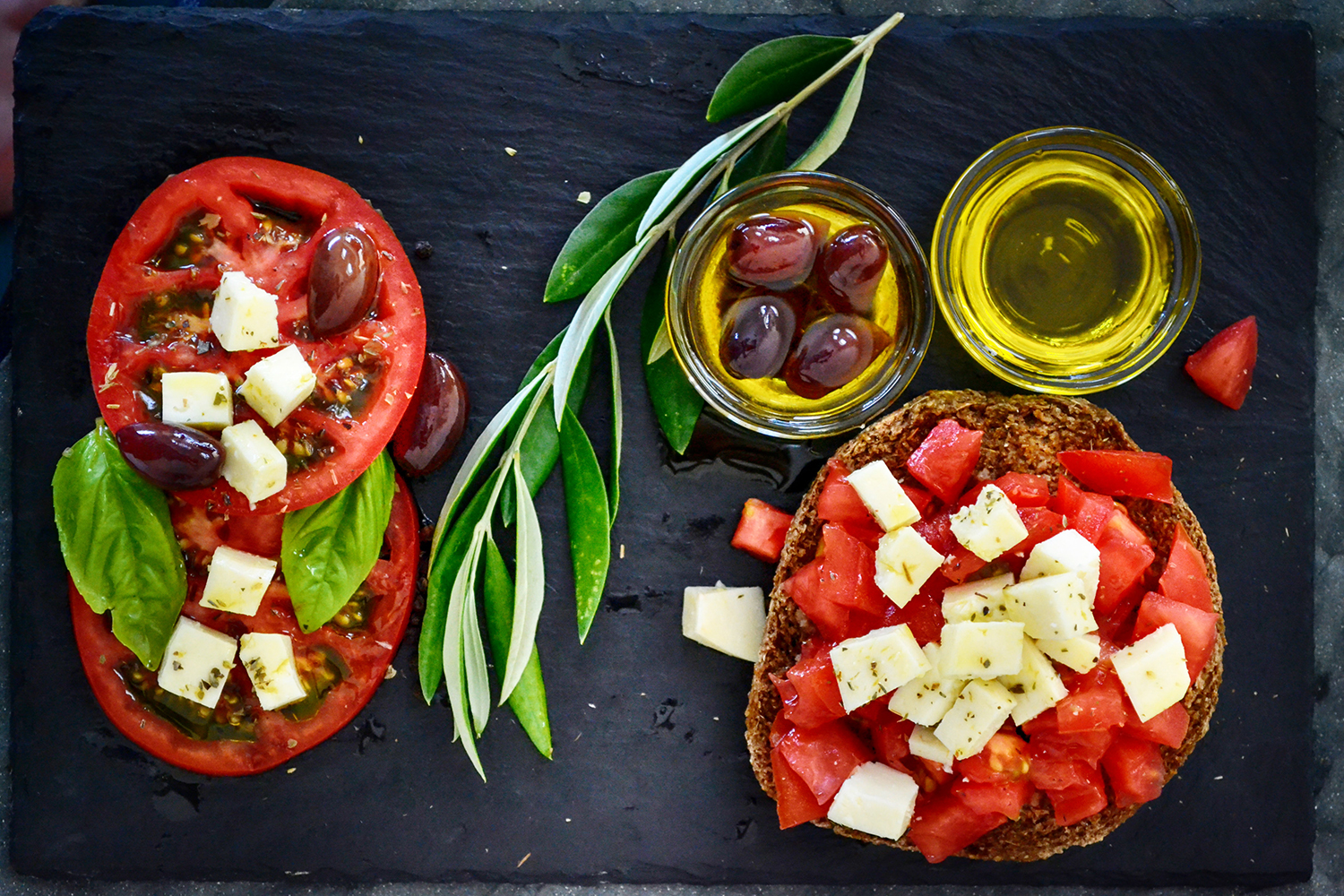Following keto, paleo, plant-based, Mediterranean or something in between? Remember the 4-4-9 rule.
Functional medicine expert Bryce Wylde explains why everyone, no matter what diet plan you follow, will do better by incorporating healthy fats.

Whether for health or weight loss, there may never be a way of eating that is perfect for everyone. “About 25 percent of people gain weight while following a strict keto diet,” observes Functional Medicine expert Bryce Wylde, BSc, DHMHS, Homeopath. “Some people gain weight on carbohydrates. Others do not. Some people are better off eating vegan. But one thing is universal: Everyone would do really well to incorporate healthy fats into their diets.”
As a clinical practitioner, Wylde understands that an individual’s DNA at least partially dictates how their body responds to food. “There are genes that dictate whether your body tends to store fat or burn it as ketones. There are genes that influence if people are good starch metabolizers. They can eat rice and beans all day without issue. For others, it might be best to sway over to meats and fats.”
He encourages people not to go all the way down one road dietarily unless they understand themselves better. “In the most general terms, you can have your DNA analyzed then use a self-decode website to turn those results into actionable items.”
The 4-4-9 rule and other healthy eating tips
In the meantime, Wylde offers his advice for fueling your body with the right nutrients.
Continue readingMediterranean Diet – Common Questions Answered
Here’s a guest post from Eva Alexander providing answers to some frequently asked questions about the Mediterranean diet.
Most people say the Mediterranean diet is high in fat. Can people still lose or maintain weight on a Mediterranean diet?
The Mediterranean diet is high in fats. But these consist of monounsaturated and polyunsaturated fats. These are healthy fats needed by your body. In contrast, the typical American diet is rich in saturated fats. It should be noted also that fat content in your diet does not determine weight loss. It is your calorie consumption that will generally influence weight loss and optimum weight management. Mediterranean diet provides lots of healthy benefits but it is still essential to lower your calorie consumption to achieve better results.
What’s the major difference of American and Mediterranean diets?
Heart Disease – Use the Mediterranean Diet to Lower Heart Disease

I’m sure you’ve heard of the Mediterranean Diet and its’ link to heart health. The Mediterranean Diet emphasizes fruits, vegetables, whole grains, fish, and monounsaturated fats (olive oil).
Those that follow a Mediterranean Diet have a reduced risk of developing heart disease and dying from a heart attack. Even those that have survived a heart attack and lived to adopt the Mediterranean Diet significantly reduced their risk of a second heart attack and other complications.
In an interesting twist, while many westerns try to follow a Mediterranean diet to reduce heart disease, the native Mediterranean population has gradually adopted a more Western diet. The Mediterranean area has seen an income rise that’s resulted in extra dollars being spent on meat and saturated fat food sources, leading to the negative results those of us in the U.S. are all too familiar with. Over the past 4 decades the average calorie intake in the Mediterranean countries has increased ~30%. So, the once healthy Mediterranean people now face increasing weight epidemics – 75% of the population overweight or obese in Greece, with over half of the population in Italy, Spain, and Portugal following suit. These countries are now supporting the “Mediterranean Diet” as a part of their cultural heritage they can not let die.
Here’s a quick breakdown of the characteristics common to a Mediterranean Diet:
- Consume high intake of fruits and vegetables
- Select whole grains
- Consume healthy fats (olive oil)
- Eat nuts in moderation
- Low red wine consumption
- Limit eggs to less than 4 times per week
- Consume little red meat
- Eat fish regularly
Let’s get into more specifics.
Fruits, vegetables, and whole grains
A high intake of fruits, vegetables, and whole grains reduces LDL (the “bad”) cholesterol that leads to a build-up of arterial plaque. Grains in the Mediterranean region are whole grain with very little unhealthy trans fats. Breads in the Mediterranean region are typically eaten without butter or margarine.
Healthy Fats
When following a Mediterranean diet you need to choose fats wisely. Include monounsaturated fat and polyunsaturated fats. Sources of these healthy fats include olive oil, nuts, and fish. The Mediterranean diet approach does not include a high saturated fat intake or trans fatty acids, both of which contribute to heart disease.
Olive oil – provides monounsaturated fat, which helps reduce LDL cholesterol. To receive the highest level of antioxidant benefits, select “extra-virgin” and “virgin” olive oils, the least processed forms. When you see the term “light” on olive oil labels, it indicates a reduced olive flavor.
Nuts – high in fat and calories, but low in saturated fat and depending on the nut you select can be a good source of heart healthy omega 3 fatty acids (i.e. walnuts). Eat in moderation due to high calorie content and limit the heavily salted nuts or honey roasted.
Wine
Red wine can have a similar affect to aspirin in that it reduces blood clotting. Red wine also contains antioxidants. If you’ve been following my posts, you know that I am not a supporter of using alcohol to reduce heart disease risk. If you already drink wine, continuing to do so in moderation (less than 4 ounces of wine per day) may be beneficial. If you do not currently consume wine, I do not recommend you start. Too much wine will counteract your good intentions and lead to additional complications, such as increased blood pressure.
Omega 3’s and Fish
Increase your intake of heart-healthy omega 3 fatty acids, which are linked to reduced triglycerides, reduced arterial inflammation, lower blood pressure and high HDL (good) cholesterol. Include fish (I don’t mean battered and fried) as a regular part of your diet in place of the more typical red meats, use flaxseed in your diet, and consider an omega 3 supplement.
All the best,
Lisa Nelson RD
Heart Disease – Use Vitamin C to Decrease Heart Disease Risk
A new Norwegian study – Diet and Omega 3 Fatty Acid Intervention – found individuals who increased their intake of fruits and berries decreased carotid artery thickening (atherosclerosis – hardening of the arteries), which leads to increased risk of heart disease.
The study followed over 560 men with an average age of 70 years-old for three years. Throughout the three years carotid artery thickness was measured and food intake was assessed via food-frequency questionnaires. Participants who increased vitamin C rich foods, such as fruit and berries, along with a Mediterranean diet plan had reduced arterial thickening. The more vitamin C the less the thickening.
The study concluded that even the elderly can make diet changes and see positive health benefits. We’ve known that fruits are an essential part of a heart healthy diet plan and this diet re-emphasizes that point.
All the best,
Lisa Nelson RD
Be Heart Healthy and Lose Weight
Heart Health and Weight Loss – Do you need to eat fat to lose belly fat?
I enjoy the show The Biggest Loser. On one of the episodes this season they had an individual from Prevention magazine share some tips based on the “Flat Belly” diet. I was very excited because it sounded like a link had been found between the Mediterranean diet and reduced abdominal obesity. Hence, the reason for this article!
The Mediterranean diet contains an increased level of monounsaturated fat compared to the typical American diet. Monounsaturated fat is a type of heart healthy unsaturated fat. One of the best monounsaturated fat sources is olive oil. I went to work researching to find scientific evidence to support a link between a diet high in monounsaturated fat and reduced belly fat.
Here’s the main study supporting the connection between decreased abdominal obesity and monounsaturated fats.
Study: Published in the Diabetes Care back in 2007 by J.A. Paniagua, MD, PHD, A. Gallego de la Sacristana, MD, I. Romero, PHD, A. Vidal-Puig, MD, PHD, J.M. Latre, MD, PHD, E. Sanchez, MD, P. Perez-Martinez, MD, PHD, J. Lopez-Miranda, MD, PHD and F. Perez-Jimenez, MD, PHD
Monounsaturated Fat-Rich Diet Prevents Central Body Fat Distribution and Decreases Postprandial Adiponectin Expression Induced by a Carbohydrate-Rich Diet in Insulin-Resistant Subjects
The purpose of this study was to show that central obesity is linked with insulin resistance (when the body does not respond normally to insulin) and studied the effect of three different diets with the same level of calories on fat distribution, insulin sensitivity, and peripheral adiponectin (fat hormone) gene expression. The study included 11 individuals that were considered insulin resistant. Everyone in the study spent 28 days on each of the following diets: 1. diet enriched in saturated fat, 2. diet rich in monounsaturated fat, 3. diet rich in carbohydrates.
The study found weight, body composition, and metabolism unchanged during all three diets. On a high carbohydrate diet, fat tended to be redistributed to the abdominal area versus the high fat diets.
There have been many studies conducted on this theory, but the results are all conflicting.
Expert Opinion
1. Not enough evidence to support a connection.
This was a fairly small study of only eleven individuals. A study on 62 women published in the Journal of Nutrition in 2004 did not find a link between a diet high in monounsaturated fat and changed body fat distribution. There needs to be more large scale studies that conclusively establish a link before we can jump on the bandwagon.
2. Follow a Mediterranean Diet anyway!
Whether or not a Mediterranean Diet targets belly fat or not, the benefits of this type of diet are well known when it comes to heart health and weight loss.
Those that follow a Mediterranean Diet have a reduced risk of developing heart disease and dying from a heart attack. Even those that have survived a heart attack and lived to adopt the Mediterranean Diet significantly reduce their risk of a second heart attack and other complications.
Also, those that follow the Mediterranean diet have increased satiety (feelings of fullness) due to the adequate fat and fiber content. This means a decreased urge to overeat which promotes weight loss.
Characteristics common to a Mediterranean Diet include:
Consume high intake of fruits and vegetables
Select whole grains
Consume healthy fats (canola and olive oil)
Eat nuts in moderation
Low red wine consumption
Limit eggs to less than 4 times per week
Consume little red meat
Eat fish regularly
If you adopt this style of eating now and some conclusive evidence comes out in the future supporting a link with decreased belly fat, it won’t matter. You’ll already be lean with a healthy heart!
Receive heart health and weight loss tips from dietitian Lisa Nelson when you subscribe to The Heart of Health ezine at https://www.lisanelsonrd.com/hearthealth.html. You can select from the free e-courses How to Lower Cholesterol in 8 Simple Steps or 7 Natural Ways to Lower Blood Pressure when you subscribe.
Mediterranean Diet to Reduce Heart Disease

I’m sure you’ve heard of the Mediterranean Diet and it’s link to heart health. The Mediterranean Diet emphasizes fruits, vegetables, whole grains, fish, and monounsaturated fats (olive oil).
Those that follow a Mediterranean Diet have a reduced there risk of developing heart disease and dying from a heart attack. Even those that have survived a heart attack and lived to adopt the Mediterranean Diet significantly reduced their risk of a second heart attack and other complications.
In an interesting twist, the native Mediterranean population has gradually adopted a more Western diet leading to negative results. The Mediterranean area has seen an income rise that’s resulted in extra dollars being spent on meat and saturated fat food sources. Over the past 4 decades the average calorie intake in the Mediterranean countries has increased ~30%. So, the once healthy Mediterranean countries are now seeing the weight epidemics the US is familiar with – 75% of the population overweight or obese in Greece, with over half of the population in Italy, Spain, and Portugal following suit. These countries are now supporting the “Mediterranean Diet” as a part of their cultural heritage they can not let die.
Here’s a quick breakdown of the characteristics common to a Mediterranean Diet:
- High intake of fruits and vegetables
- Select whole grains
- Consume healthy fats (canola and olive oil)
- Eat nuts in moderation
- Low red wine consumption
- Limit eggs to less than 4 times per week
- Consume little red meat
- Eat fish regularly
All the best,
Lisa Nelson, RD, LN
eNutritionServices



